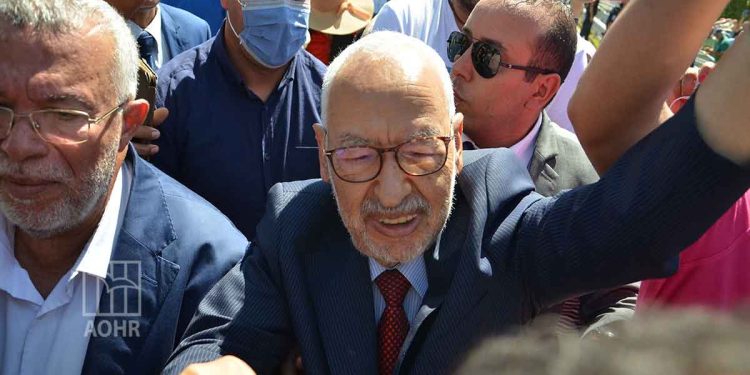The Criminal Chamber of the Tunis Primary Court issued a ruling today, Friday, sentencing Rached Ghannouchi, leader of the Ennahda Movement, to two years in prison and a financial fine. The sentence stems from his donation of an international award, granted for promoting Gandhian principles of peace and tolerance, to the Tunisian Red Crescent.
In a statement, Ghannouchi’s legal defence team clarified that he had received this award on 7 November 2016, in recognition of his efforts to promote values of tolerance, peace, and love throughout his political and intellectual career. He was noted as the first Arab figure to receive such an honour.
The defence team argued that the ruling concluded a judicial process marred by procedural violations, asserting that it contravened legal standards and failed to meet the most basic guarantees of a fair trial.
This case highlights the increasingly fragile human rights climate in Tunisia, where essential judicial guarantees have significantly eroded. The ruling underscores the growing concentration of power within the executive branch, which has had a clear influence on judicial proceedings, particularly those involving political opposition figures or individuals of political prominence.
Recent years have seen the Tunisian judiciary shift away from the necessary balance between state institutions, allowing politically motivated decisions to be made within the judicial arena, whether through prosecution mechanisms or during trials themselves.
The manner in which this case was handled, from its initiation to the final verdict, reflects a troubling imbalance of power, with the judiciary appearing more as an extension of the executive authority than as an independent body capable of safeguarding rights and liberties.
The case also reveals the weakness of practical protections for the principle of a fair trial, whether in terms of procedural integrity, the rights of the defence, or judicial impartiality when dealing with politically sensitive cases. Prosecuting a public figure for a donation linked to a personal award, without proven financial wrongdoing or evident harm to the public interest, signals a worrying expansion of criminalisation beyond its natural limits and a clear use of legal mechanisms for overtly political purposes.
The two-year prison sentence handed down to Ghannouchi cannot be separated from the wider political context in Tunisia, nor from the rollback of protective mechanisms that once shielded citizens and political actors from politically motivated prosecution. This approach fuels perceptions that the judiciary is no longer a defender of rights, but rather a tool in managing internal political conflict.
With the defence team announcing its intention to appeal, the case remains open to further developments. However, it raises serious questions about the future of judicial independence in Tunisia and the ability of the current system to deliver genuine justice free from political interference.


























